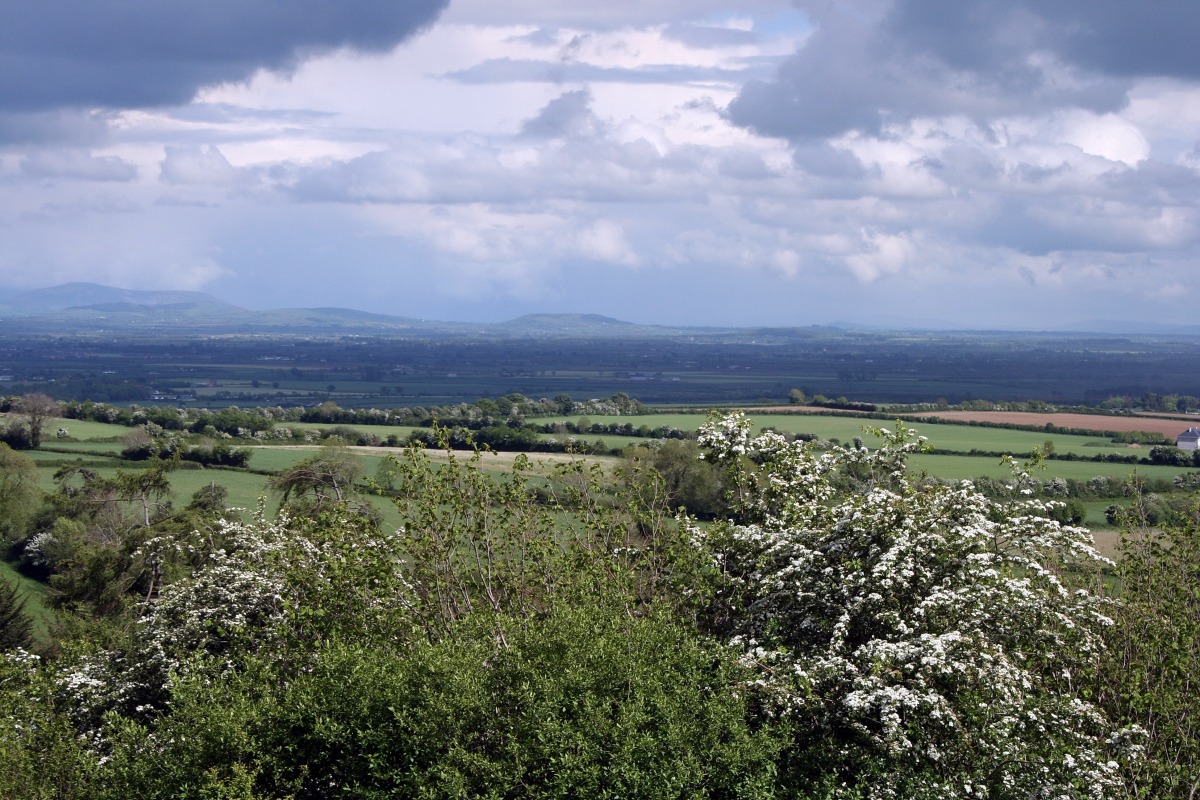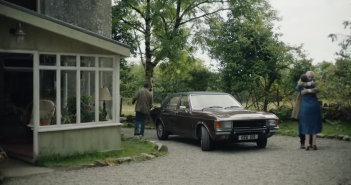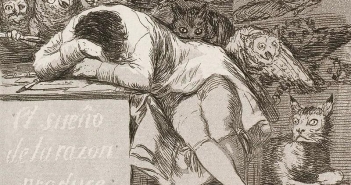Few writers can do grief and loss like John MacKenna. He is, without question, the John McGahern of the ‘Ancient East’. Where McGahern has put the villages and drumlins of Leitrim along the inland cusp of the ‘Wild Atlantic Way’ at the heart of his writing, the landscape of South Kildare, and its surroundings are integral to MacKenna’s works and that is no different in Father, Son and Brother Ghost where place is the sorrowful score to MacKenna’s libretto.
Unravelling grief is the strange, poignant music of the heart: If ‘grief is the price we pay for love’ MacKenna paid that price. All MacKenna’s fiction revolves around Castledermot, The High and Low Terraces of Abbeylands where the MacKennas lived: The rivers Lerr and Barrow, Mullaghcreelan Woods, Kilkea, Athy, Carlow, the Sliabh Bloom mountains and the midland bogs looming beyond are accomplices in what becomes a landscape of bitter-sweet melancholy. This memoir, mimicking the prayerful intonation ‘Father, Son and Holy Ghost’ is a hymn to MacKenna’s older brother, Jarlath whose untimely death at 62 in 2005 left the writer so bereft that he has been writing and rewriting this memoir for seventeen years between various other pursuits, not least a plunge into psychotherapy as he told a packed audience at its launch recently in the library in Athy.
Jarlath spent the bulk of his working life as a doctor in North Carolina. In this moving memoir, landscape and place become sites of consecration to a lost brother, evoked through fragments of joyful memories, where often, more harrowing family anecdotes and memories interpose – his mother’s tears when the family were leaving the Low Terrace for a larger house on the High Terrace because she was leaving behind three still born babies buried there at the bottom of the garden.
The sometimes distraught attempt to recover this lost fraternal connection reaches back into his parents’ own history, and the increasing friction and disappointment between them, caused, it appears, by Jack MacKenna’s increasing dependence on alcohol. But if Jack MacKenna was an alcoholic, he was a highly functioning one. John, as the youngest child of three, experienced these tensions more intensely, as he was like an only child because his brother and sister were away at boarding school. They were all, to different degrees ‘survivors of their own small carnage’ but he ‘didn’t know it at the time’. Set apart from their neighbours by being the school mistress’s children, the yearning for belonging abides.
Ten years younger than Jarlath, MacKenna is first separated from him when his adored older brother is sent to boarding school in Limerick while the younger brother is still an infant. In the escalating tensions of the home, Jarlath became John’s rock and anchor and his sense of abandonment in the older brother’s many absences is a source of anguish.
It seems the younger brother only realised when Jarlath died that he had never overcome these earlier losses due to their many separations. The severances are amplified, not just by the large age gap, but by the fact that Jarlath spent his summers working in England during his college years when he first studied for an arts degree followed by a H. Dip in Education and then went on to study medicine.
During these periods, Jarlath’s trips to Castledermot were brief but they are jealously recovered here. In choosing to pursue his medical career in America, the miles of the Atlantic Ocean eventually stretched between them, keeping the brothers geographically apart as adult men.
Unsurprisingly, MacKenna conveys a sense of betrayal by all these ‘sunderings’ culminating in his brother’s death from motor neuron disease a few days after he visits him. They are only spared one last night together as Jarlath deteriorated unexpectedly. All this pours forth in torrents of ‘unending loss’. Loss is ‘the tiny, pitched hole in the sky at night or the sun’s hesitation about rising at dawn’. It is ‘a grief that has been given two decades to condense but it remains’.
With incredible skill this ceaseless grief, punctuated by cherished memories is movingly retold – snatched scenes during school and Christmas holidays, pranks played, photos of the three MacKenna children on swings, at picnics, on car bonnets – photos, not provided in the book but described in the minutest detail. In this, intense nurturing of memory, MacKenna manages, not just to keep his absent brother present but to evoke both brother and disappointed father with immense love.
MacKenna’s despair was so all-consuming that he lost his second marriage amid the wilderness of the fallout from his brother’s death and for this, he is not easy on himself. Fats Domino, Buddy Holly, the Beatles, the Beach Boys, Simon and Garfunkle, Elvis, Mozart and even prayers become accessories in recovered memories – every child of the 60s will identify with them and the same goes for the rosaries and the stations of the cross. The smell of polish, beeswax and lavender evoking back-to-school nostalgia are experiences all those of MacKenna’s generation will easily identify with and they are all tinged with a hint of the sanctified.
Equally, we all knew a Lal McKenna – his single aunt whom, not unlike the heroine of Joyce’s ‘Eveline’, sacrificed her own prospects of love and marriage to care, first for her younger siblings and after that, for her sister’s children in Athy where she lived-in with the family, and also served in the shop. We all know too of the shoe-box coffins where dead and premature babies, excluded from ‘consecrated ground’ for not being baptised were, instead buried in old, abandoned graveyards or other local hallowed spots.
Jarlath’s kindness to the brother, ten years his junior are emotionally recalled as numerous amputations – the ‘tearing apart of what was their brotherhood.’ An image of their father, Jack leaning on a spade at the opening throws a shadow over the pages – a shadow ‘that reached back into the past eight decades’.
The narrative is not chronological but rather moves joltingly from different decades and places – itself evoking loss and dislocation. We are plunged into Jack’s own displacement when, after his mother died soon after he was born, he and his siblings were moved to his grandmother’s house in Celbridge. When his father remarried, Jack McKenna and his siblings were moved back to Bluebell Cottage in Athy where his father, a train driver, was based. Jack McKenna followed his own father into work on the railways and eventually becoming a signalman and foreman in Athy. ‘We are a railway family’ MacKenna informs the reader and his father was an exemplary worker. MacKenna’s earliest dreams was to be a railway worker too.
This beautifully crafted memoir on a grief that brings the writer to the edge of self-annihilation is full of hope too. We are ‘not just the people our parents make us but what we make of ourselves’ and we can ‘all if we are lucky, venture down the road of understanding and mercy’. Like his masterful debut novel The Last Fine Summer (1997) this memoir marks MacKenna out as a dazzling virtuoso of the poetics of love and loss.
Father, Son and Brother Ghost is published by The Harvest Press www.theharvestpress.ie




